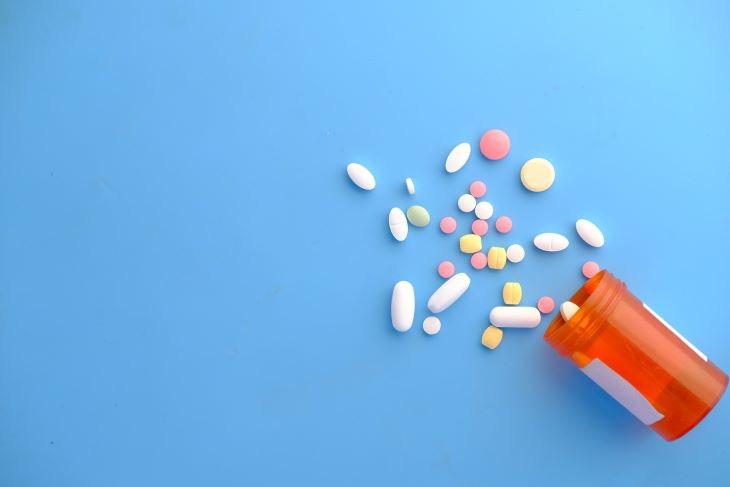Drug & Alcohol Rehab in Trowbridge
To transport individuals from addiction to a full recovery, drug and alcohol rehab in Trowbridge utilises a series of treatments. These are strategically ordered to maximise the effectiveness of each treatment, as well as to create a logical progression towards sobriety.
Stages of Drug & Alcohol Rehab in Trowbridge

Stage 1: Detox
When an individual first enter treatment, they may have a physical dependency. Not all substances trigger them, but those such as alcohol and heroin corrupt the body into becoming reliant on their consumption in order to function.
Such a physical connection to addiction impedes progress. Individuals trying to become sober will experience withdrawal symptoms which lock them into their unhealthy behaviour cycles.
Detox, therefore, kicks off rehab by targeting this dependence. By gradually reducing substance use over the course of 7 to 10 days – while under the supervision of doctors – individuals can be freed from their irresistible desire to consume drugs or alcohol.
Stage 2: Therapy
Once detox has taken effect, drug and alcohol rehab in Trowbridge can focus on understanding and treating the roots of addiction.
Prior to a physical dependence forming, or if one never developed in the first place, an individual’s substance will be motivated by something other than cravings. These are known as triggers, and they can be thoughts, feelings, or things they experience regularly.
Although the body has been cleansed, such triggers will still pose the risk of drawing individuals back into addictive behaviours. Therapy, therefore, is required. This treatment looks to identify and provide healthier coping mechanisms for triggers.
Stage 3: Relapse Prevention
With physical and mental sobriety achieved, treatment’s priority shifts to strengthening and protecting the progress an individual has made. After leaving rehab, individuals must be equipped for avoiding the several stages of relapse [1].
Relapse prevention conducts this preparation using a variety of techniques. Every individual will have different ways in which they can be best helped, but the process always aims to provide techniques for managing triggers and skills for resisting cravings.
One such technique is HALT. When cravings strike, individuals are taught to ask themselves if they are hungry, angry, lonely, or tired. Rather than needlessly relapsing, HALT offers the opportunity to tend to another basic need to see if the cravings will go away with that.
Start your recovery journey today by calling our expert team to access drug & alcohol rehab in Trowbridge on 0800 088 66 86
Medical detox – the difference between rehab and self-treatment

Detox is a fundamental part of drug and alcohol rehab in Trowbridge, but it can easily be overlooked. If a slow and steady approach is the key to successfully beating physical addiction, why can’t individuals simply do it themselves at home?
The answer is simple – detox is a medical process, and its success relies greatly on the presence of medical professionals.
Most importantly, doctors offer an invaluable degree of security. Individuals are protected from harm by experts who can slow the detox process if the body begins to react negatively.
Alone, individuals will lack this expertise and almost certainly detox too quickly.
In addition, doctors have the power to prescribe medications which makes the process much smoother. Benzodiazepines can calm withdrawal symptoms, not only ensuring that progress is not squandered but also protecting health and well-being.
Will addiction therapy be able to help me?

Therapy is a very versatile treatment. Individuals may wonder how effective it will be for them given how widely portrayed it is in the media as a hit-and-miss source of support, but the reality is very different.
Addiction therapy is able to change its shape and approach, taking on such a wide range of forms that it can help people regardless of what their addictive triggers are or whatever psychological problems they live with.
While sessions can look so vastly different, some of the most popular forms of therapy include the following:
1. Cognitive Behavioural Therapy (CBT)
The way an individual thinks can become the motivation for unhealthy behaviours. If misperceptions or negative thoughts incentivise an individual to use a substance, they become reinforced as addictive triggers and are never helped.
In CBT, these thoughts are highlighted and addressed. Their causes are identified, and techniques are practised which help individuals understand why they are not grounded in reality and how their influence on behaviour can be resisted.
2. Dialectical Behavioural Therapy (DBT)
Certain emotions can become so regular in our day-to-day lives that we react to them in a consistent way. If such feelings are negative, we can come to think of certain activities, healthy or not, as effective ways of handling them, and this can happen with addiction.
Feelings like sadness, anger, and regret can be so frequent and intense that individuals see no other way to cope than to get high using drugs or alcohol. DBT helps individuals talk about such emotions to discover more sustainable means of coping with them.
3. Holistic therapy
Triggers are a fine target in therapy, but sessions by no means need to have such a linear approach. There is a growing idea that individuals can be helped via support which treats them as whole individuals and looks to benefit their overall health and well-being.
Holistic therapy uses art, music, mindfulness, and exercise, along with a wide range of other activities to improve health, worldview, independence, and sense of purpose. All of these combine to draw individuals away from the allure of addiction and live with more agency.
4. Family therapy
Relatives, siblings, partners – conflicts with these individuals can have a particularly negative impact on an individual’s mind and behaviour. With family issues being so impactful to everyday life and wellbeing, they can often be the source of addictive behaviours.
Family therapy brings relatives into sessions and hosts discussions which aim to solve addiction-fuelling problems. Such conversations also seek to provide members of a family with the skills to pre-empt and prevent relapse.
5. Group therapy
The majority of therapy formats are intimate affairs, involving just an individual and therapist. There are immense benefits to such personal sessions, but hosting talks between a group of other recovering individuals can provide a whole new breed of benefits.
Talking about their experiences of addiction and rehab, individuals attending group therapy can feel part of a community. They can gain advice from one another, share stories of ups and downs, and see first-hand what an impact rehab can make.
6. Motivational interviewing
As well as targeting triggers, therapy can provide the function of supporting individuals as they work through their rehab. In particular, it can help them persevere with the physically and mentally taxing toll which rehab takes.
Motivational interviewing helps individuals identify and focus on the dreams and desires they have. Whether they are addiction-related or more personal, sessions focus on placing these goals at the centre of an individual’s rehab journey and using them as fuel.
Start your recovery journey today by calling our expert team to access drug & alcohol rehab in Trowbridge on 0800 088 66 86
Life after rehab – the work isn’t over

Completing drug and alcohol rehab in Trowbridge is such a huge achievement, individuals should leave treatment with immense pride. However, what they must not be led to believe is that their recovery is complete and that they can assume their health is permanent.
Relapse looms over recovered individuals, and regardless of how determined they are to remain sober, work must be done to keep on top of addictive triggers and cravings. To support them in doing this, aftercare is widely available.
Aftercare can come in many forms which look to maintain sobriety. Sessions can look to build upon therapeutic progress and continue engagement with triggers, or they can function as health check-ups to maintain physical independence from substances.
This post-rehab work can also lend much more specific support to individuals in their personal conditions. Alcoholics Anonymous sessions, for example, bring recovering alcoholics together to talk about obstacles and challenges unique to alcoholism.
Alcoholics Anonymous, as well as other specialist groups like Narcotics Anonymous, Cocaine Anonymous and SMART Recovery, hold regular meetings in and around Trowbridge.
Time and money: what does drug and alcohol rehab in Trowbridge require?

Committing to treatment is an investment, and individuals need to know exactly what will be required of them if they choose to undergo drug and alcohol rehab in Trowbridge.
1. The duration of rehab
Firstly, rehab will require an individual’s time. In order to sufficiently engage with detox, therapy, and relapse prevention, an individual will need to take time away from their work and family, and arranging this will greatly depend on how long their absence will be.
28 days are the average duration of drug and alcohol rehab in Trowbridge. The first 7 are spent detoxing from a substance, and the remaining 21 are spent in therapy and relapse prevention.
Sometimes the process can take longer. This is never by accident, however, and some of the more common reasons for this include:
- An individual’s condition being particularly severe
- A pre-existing health condition complicating detox or therapy
- An individual lacking the motivation to properly engage with treatment
2. The cost of rehab
Secondly, rehab will cost money. Outside of NHS drop-in sessions, addiction support services are not offered for free. Rehab programmes are known for coming at high prices, but the reality is that there is quite a range of options out there.
The average price in the UK for a week’s addiction treatment is £14,000. Prices can be found between £1,000 and £10,000, however, as well as up to and beyond £70,000 for more luxury programmes.
Of course, not everyone can afford to pay for rehab out of their own pocket. Thousands of pounds cannot be plucked out of thin air, but there are financial support options out there.
Local councils set aside funds to support those who need rehab but cannot afford it. These grants are notoriously difficult to access due to high demand, but individuals should apply and see what support they can get.
Can I help someone else consider rehab?

Addiction doesn’t have to affect us personally to be a source of anxiety and concern. You might know someone who is struggling with substance abuse and not know how to help them.
Denial stops them from helping themselves [2], so what can you do?
Thankfully, you are not powerless! You have several options available, and each of them is a slightly different method of encouraging an individual to consider their situation and whether they need treatment.
1. A one-to-one chat
Your most simple option is to speak with them. Pull the individual to one side and ensure that no one else is around. Gently enquire as to whether they have noticed anything different happening with their substance use or their health.
Being calm and supportive is key here. Speak with genuine love and interest, and do not pressure the individual into accepting their situation. If they feel attacked, they will reject your concerns, so find a balance between determination and acceptance.
2. A conventional intervention
A slightly more impactful approach is an intervention. Speak with friends and family, and arrange for them to meet together to confront the individual about their addiction. Everyone must come prepared to share how the condition has affected them.
Interventions are designed to show an individual the scale of their behaviour. With so many loved ones coming together to address them, it should hit the message home that action is required. Again, attacking the individual will prove futile, and unanimity is key.
3. A CRAFT intervention
A different approach to the intervention format is CRAFT. Rather than physically meeting at a single place, family and friends work together to gradually influence an individual’s behaviour in a positive way.
By rewarding healthy behaviours and punishing those which reinforce addiction, the CRAFT approach seeks to slowly show an individual the benefits of sober living and draw their attention to the negative impacts their addictive behaviour is having on their well-being.
Start your recovery journey today by calling our expert team to access drug & alcohol rehab in Trowbridge on 0800 088 66 86
Selecting the right support for you – how to do it

There are a lot of options for drug and alcohol rehab in Trowbridge. How, then, are you supposed to select a programme which is suitable for your personal situation?
Every programme will take a slightly different approach to the recovery process, but you can find the right one by considering some of the following things when searching for treatment:
- Budget – What can you afford or access with the support of council funding?
- Treatments – Do you need detox? What kind of therapy do you think would benefit you most? Speak with a doctor or GP for advice, and then search for programmes which offer the treatments you need.
- Reviews – Look at what previous patients have to say about a facility. What is the consensus on the staff, atmosphere, accommodation, and catering?
Getting help from Rehab Recovery
If you think you could benefit from drug and alcohol rehab in Trowbridge but aren’t sure where to begin, get in touch with us at Rehab Recovery.
Whether you need more information about the components of rehab or are unsure as to whether you need addiction treatment in the first place, our helpful and friendly team are ready to offer you all the guidance and support you need.
Start your recovery journey today by calling our expert team to access drug & alcohol rehab in Trowbridge on 0800 088 66 86
References
[1] https://www.ncbi.nlm.nih.gov/pmc/articles/PMC4553654/
[2] http://pure-oai.bham.ac.uk/ws/files/25519189/DENIAL_PICKARD_M_L_FINAL_PRE_PROOF.pdf


